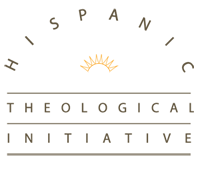2022 HTI Book Prize Winner
Migrational Religion:
Context and Creativity in the Latinx Diaspora

João Chaves
João Chaves offers an account of the dynamics that shape the role of immigrant churches in the United States. Migrational Religion acts as a case study of a network formed by communities of Brazilian immigrants who, although affiliated with the Southern Baptist Convention, formed a distinctive ethnic association. Their churches began to appear in the United States in the 1980s due to Brazilian Baptist missionary activity. As Brazilian migration increased in the last decades of the twentieth century, hundreds of Brazilian evangelical churches were founded to cater to first-generation immigrants. Initially their leaders conceived of these churches as extensions of their denomination in Brazil. However, these church communities were under constant pressure to adapt to their rapidly changing context, and the challenges of immigrant living pushed them in exciting new directions.
Brazilian churches in the United States faced a number of issues peculiar to their nature as diasporic communities: undocumented parishioners, membership fluctuation caused by national and international migration patterns, anti-immigrant prejudice, and more. Based on six years of ethnographic work in eleven congregations across the United States, dozens of interviews with Brazilian pastors, and extensive archival history in English and Portuguese, Migrational Religion documents how such churches adapted to unique challenges, and reveals how the diasporic experience fosters incipient theologies in churches of the Latinx diaspora.
Migrational Religion is an enlightening transnational religious history that, while focusing on the specific case of Brazilian Baptists in the United States, produces substantial implications for studying world Christianity and migration in various contexts. By interrogating multidirectional missional perspectives, this border-crossing narrative complexifies conversations about missionary transmission, indigenous agency, and identity formation in the context of migration. A migrant himself, with first-hand formative experience in migrant congregations, João Chaves understands his interlocutors as very few others do. He masterfully interweaves the stories of individuals, congregations, and transnational migrant networks, underscoring their impact across nations, cultures, and faith communities. Migrant Christians are portrayed through the liminality of a transient context, which is changed by their very presence, but which simultaneously changes them in the process. This book is, therefore, a welcome addition to the burgeoning literature on religion and migration. However, make no mistake. This volume is not just another study on global-South migratory religion. In fact, it shows the significance of faith in the experience of migration through new and provocative lenses, drawing attention in particular to the often-underestimated reach of transnational religious networks and the rise of influential transnational religious leaders who have become powerbrokers uniquely skilled to navigate a complex web that includes undocumented immigrants, educators, business owners, and politicians.
Raimundo C. Barreto, Associate Professor of World Christianity, Princeton Theological Seminary
… Migrational Religion is an excellent resource for students and scholars not only of World Christianity but also in the fields of Latinx Studies, American Religious History, Theology, and Migration Studies.
Matheus Reis ― International Review of Mission
